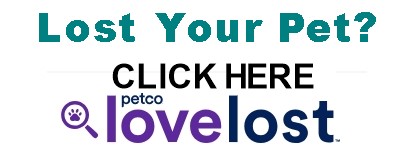Animal Poison Control Center’s 24-hour hotline at (888) 426-4435
Both known and unknown toxins can be found hiding in our houses and yards. In 2010, the ASPCA Animal Poison Control Center (APCC) in Urbana, IL, fielded more than 167,000 phone calls about pets exposed to possibly poisonous substances.
Top 10 Pet Toxins
Human Medications
Almost 25 percent of our calls concerned human medications accidentally ingested by pets. The most common culprits include over-the-counter medications (ibuprofen, acetaminophen), antidepressants and ADHD medications.
Insecticides
About 20% of the calls to the APCC are about insecticides. Insecticides are commonly used on our pets for flea control and around our houses to control crawling and flying bugs. The most serious poisonings occurred when products not labeled for use in cats were applied to them. Always follow label directions.
Rodenticides
Baits used to kill mice and rats are mostly grain based. Not only does this attract rodents, but it attracts dogs and cats. There are several different types of rodenticides that can cause seizures, internal bleeding or kidney failure. Always make sure these items are placed in areas that pets cannot access.
People Food
Xylitol, grapes, raisins, onions and garlic are commonly ingested by our pets. Grapes and raisins can cause kidney failure in dogs, while onions and garlic can cause anemia if enough is ingested. Xylitol, a sugar alcohol used to sweeten sugar free gums and mints, can cause low blood sugar and liver failure in dogs.
Veterinary Medications
Many medications made for our pets are flavored for ease of giving. Unfortunately, that means that animals may ingest the entire bottle of medication if they find it tasty. Common chewable medications include arthritis and incontinence medications. Contact your veterinarian if your pet ingests more than his proper dose of medication.
Chocolate
Chocolate contains methylxanthines, which act as stimulants to our pets. The darker the chocolate, the more methylxanthines it contains. Methylxanthines can cause agitation, vomiting, diarrhea, high heart rate, muscle tremors, seizures and death.
Household Toxins
Cleaning supplies, such as bleach, acids, alkalis and other detergents, can cause corrosive injury to the mouth and stomach. Other household items such as batteries and liquid potpourri can cause similar problems. Always keep these toxins behind securely locked doors.
Plants
Both house plants and outdoor plants can be ingested by our pets. Lilies can cause life-threatening kidney failure in cats, while sago palms can cause liver failure in dogs and cats. Keep house plants and bouquets away from your pets.
Herbicides
Many herbicides have a salty taste, and our pets will commonly ingest them. Always follow label directions and keep pets off treated areas until they are dry.
Outdoor Toxins
Antifreeze, fertilizers and ice melts are all substances that animals can find outdoors. Keep these items in securely locked sheds or on high shelves where pets cannot get to them.
If you have any reason to suspect your pet has ingested something toxic, please contact your veterinarian or the Animal Poison Control Center’s 24-hour hotline at (888) 426-4435.






